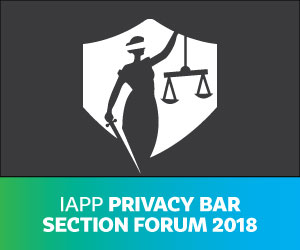Blockchain could be illegal in the European Union.
There's one vast drawback on the horizon, though: European privacy law.
The bloc's General knowledge Protection law, which can get impact in an exceedingly few months' time, says folks should be ready to demand that their personal knowledge is corrected or deleted underneath several circumstances. A blockchain is actually a growing, shared record of past activity that is distributed across several computers, and therefore the whole purpose is that this chain of transactions (or different fragments of information) is in follow constant – this can be what ensures the dependability of the data hold on within the blockchain.
For blockchain comes that involve the storage of private knowledge, these 2 facts don't combine well. And with sanctions for flouting the GDPR together with fines of up to €20 million or four p.c of worldwide revenues, several businesses could notice the ultra-buzzy blockchain trend plenty less eatable than they initial thought.
"[The GDPR] is agnostic concerning that specific technology is employed for the process, however it introduces a compulsory obligation for knowledge controllers to use the principle of 'data protection by design'," same January Philipp Albrecht, the member of the ecu Parliament UN agency shepherded the GDPR through the legislative method. "This suggests that for instance that the information subject's rights will be simply exercised, together with the correct to deletion of knowledge once it's not required.
"From a practitioner's perspective, it sounds to Pine Tree State that it absolutely was written by attempting to implement an exact perspective of however the globe ought to be while not taking into consideration however technology truly works," Steiner same. "The method [public localized network] design works, means that there's no such issue because the deletion of private information. the difficulty with data is once it's out, it's out."
"Given the stage wherever the technology is at, i believe there is time to hopefully modify bound things within the GDPR," Steiner additional. "I cannot see the regulators being thus stubborn on not modify the regulation. … they {will|they're going to} simply see the opposite countries will use the technology and Europe is at an obstacle."
That appears unlikely to happen anytime before long. The GDPR could be a new regulation, and EU laws tend to last for a protracted time before revision — the info Protection Directive that preceded the GDPR was written means back in 1995.
"Certain technologies won't be compatible with the GDPR if they do not offer for [the exercise of information subjects' rights] supported their bailiwick style," Albrecht insisted. "This doesn't mean that blockchain technology generally should adapt to the GDPR, it simply means it most likely can not be used for the process of non-public knowledge. This call is that the responsibility of each organization that processes personal knowledge."
Although the clash between the GDPR and blockchain technology has received very little attention to date, it's occurred to some folks.
The heavenly body information was, till its main funder recently force support, a project that aimed to make a blockchain-based information system – it had been to be a form of hybrid private-public blockchain, wherever the nodes within the network were preselected, however anyone might send transactions to the network or browse the info keep on that. per IPDB Foundation co-founder Greg McMullen, the Berlin-headquartered team was cognizant of the issues posed by the GDPR.
One downside, McMullen aforementioned, was the shortcoming to switch or delete information keep in a very blockchain. however there was another issue, too.
"The GDPR is written for a cloud services model wherever, say, i am a startup and that i collect eating place order information and that i store it all on Amazon net Services, and that they do my hosting on behalf of me, therefore I even have to possess a contract with Amazon that passes on my privacy obligations to them," McMullen aforementioned. "It works rather well once there is one or 2 suppliers, however after you begin having a suburbanized network it breaks down entirely. you cannot have a contract with [all] the nodes on the Ethereum network. It's infeasible."
So World Health Organization really is accountable for information protection in a very suburbanized network? on balance, one among the massive attractions of such networks is that they're proof against censorship, as a result of there is no cytoplasm – no Amazon or Facebook – for enforcers to travel once, and since the nodes or users that form up the network square measure scattered round the world.
According to Albrecht, if it is a personal blockchain, GDPR compliance is that the responsibility of the organization that is deploying it. "For suburbanized and public blockchain applications, it'd be the responsibility of every user World Health Organization puts personal information within the distributed ledger to make sure this can be GDPR compliant," the parliamentarian aforementioned. "Which in most cases it will not [be]."
The liability issue can scare several businesses off mistreatment blockchains, McMullen warned. "It's true that the rules can ought to catch up with the technology, however you've got to be realistic regarding the very fact that the GDPR could be a real stuff and it's happening, and there'll be social control of it," he said. "When you are asking corporations to use blockchains, they don't seem to be attending to take that risk with their customers' knowledge – or a minimum of they should not be."
According to McMullen, the IPDB Foundation had been engaged on varied concepts for managing the information protection downside. One was a system of "blacklisting" bound knowledge in order that, although it wasn't deleted from the network once this was needed, it would not be served once requested.
Another plan was to solely place "hashes" of private knowledge into the blockchain, instead of the information itself. Hashes square measure mathematical derivations of information that, if properly enforced, can not be reverse-engineered to reveal {the knowledge|the info|the information} that is being painted – however you'll be able to use them to verify the underlying data, by repetition the hashing algorithmic program thereon knowledge and scrutiny the result with the hold on hash. With a blockchain of hashes, instead of the underlying knowledge, it would be doable to delete the information while not having to change the blockchain. That way, the blockchain may manage to be helpful for collateral knowledge whereas remaining GDPR-compliant, McMullen steered.
Is it probably that regulators would clamp down on this rising sector, though? McMullen, a lawyer, same the primary social control targets would presumably be "the usual suspects — the Googles, Facebooks, Amazons," however it "could be terribly straightforward for a regulator to choose to form a show of going when a blockchain company as a result of it's a really hyped term."
"As corporations begin understanding [the GDPR's implications], we have a tendency to might see a true move to regulate to the laws by collection less knowledge and mistreatment the information during a approach that doesn’t expose it to the general public web, like with hashes," McMullen same. "In that approach, the technology may accommodates the law in addition because the law adjusting to the technology. It might within the finish be superb for user privacy."
its good to know..
thanku... i will keep posting like this
dark futre is coming ahead for cryptocurrency
yes you are absolutely right
there are many third party app, whom are abusing of blockchain
hmm.. they are abusing of it
Because,One of the fundamental operational premises of most blockchain-based applications is in danger of being against a new European law on privacy.
Bitcoin's popularity increase day by day.
Well content on blockchain. Keep it up. @mdshahin786
i don't know about blockchain properly.
future not be well
future not be well
good to know